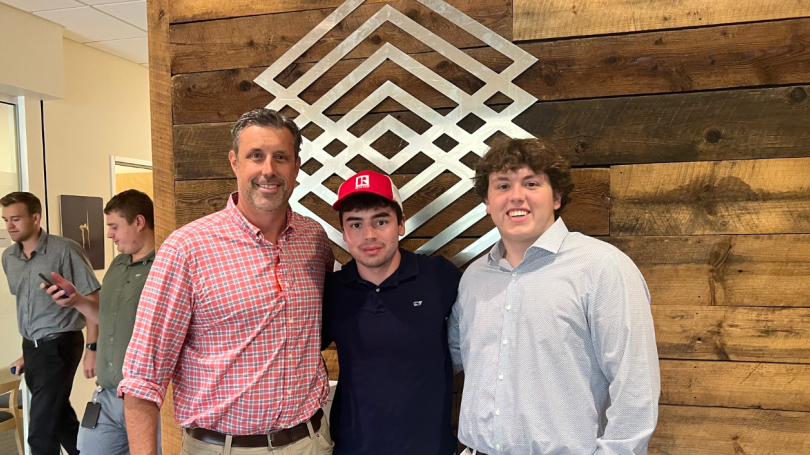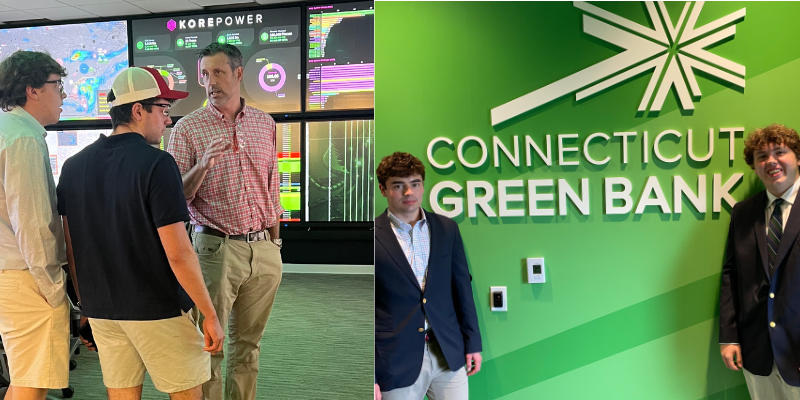

In May 2024, Alexander Germain '27 (Alex) and John Marino '27 (Jack) embarked on a journey across New England to explore the opportunities and challenges in developing a resilient clean energy system for the region. Their findings are documented in the report Harnessing Energy Storage for a Resilient New England Grid.
While many people focus on intermittent renewables like solar photovoltaics and wind energy when considering a clean energy transition, enhancing the reliability of these sources—ensuring their availability even when the wind isn't blowing or the sun isn't shining—requires effective energy storage solutions. Alex and Jack aimed to analyze the energy storage market, address misconceptions, identify effective and ineffective policies, and raise awareness about viable storage options that boost grid resilience.
"As the demand for power grows exponentially, energy storage is paramount to solving New England's energy intermittency problem, making energy delivery smooth, reliable, and efficient." – Alex Germain '27
In preparation for their summer 2024 journey, Alex and Jack dedicated several months to identifying key thought leaders to interview, including numerous Dartmouth alumni and industry experts. The staff at the Revers Center for Energy, Sustainability, and Innovation, along with the Arthur L. Irving Institute for Energy and Society, were instrumental in helping them identify the right stakeholders for these interviews.

Over a series of virtual and in-person meetings spanning New Hampshire, Connecticut, Massachusetts, and Vermont, Alex and Jack met with more than 15 experts across various sectors. Their interviewees included leaders in energy storage, fuel cell, and hybrid energy system companies, as well as investors, financiers, consultants, policymakers, and prominent academics.
Notably, they met with Phil Giudice, TU '85, who currently serves as Board Chair for FirstLight, a company specializing in hybrid solutions. In 2021, Phil was appointed Special Assistant to the President for Climate Policy during the startup of the Biden-Harris administration. His extensive career includes founding clean energy startups and holding leadership positions at state, regional, and federal levels, including leading the Regional Greenhouse Gas Initiative
Through their extensive interviews, Alex and Jack gained valuable insights into several clean energy technologies, along with an understanding of the financial, policy, and regulatory issues that can facilitate or impede the development and deployment of essential technologies like long-duration energy storage. By comparing New England to other markets, they identified solutions that could accelerate a resilient clean energy transition in the region, concluding their report with insights and recommendations.
"Developing a resilient renewable energy market in New England requires restructuring the existing system of credits and incentives to prioritize renewable energy cost structures and speed up the interconnection of storage assets to the grid." – Jack Marino '27
This research journey was funded by a student grant from the Arthur L. Irving Institute for Energy and Society. Learn how to engage with the Irving Institute. Prior to receiving this grant, Alex participated in an Energy Immersion Trip to Appalachia, and Jack participated in the Electricity Grids and Markets Bootcamp. These experiences deepened their understanding of the complex energy system and helped to prepare them to extend their learning through an independent student research grant.